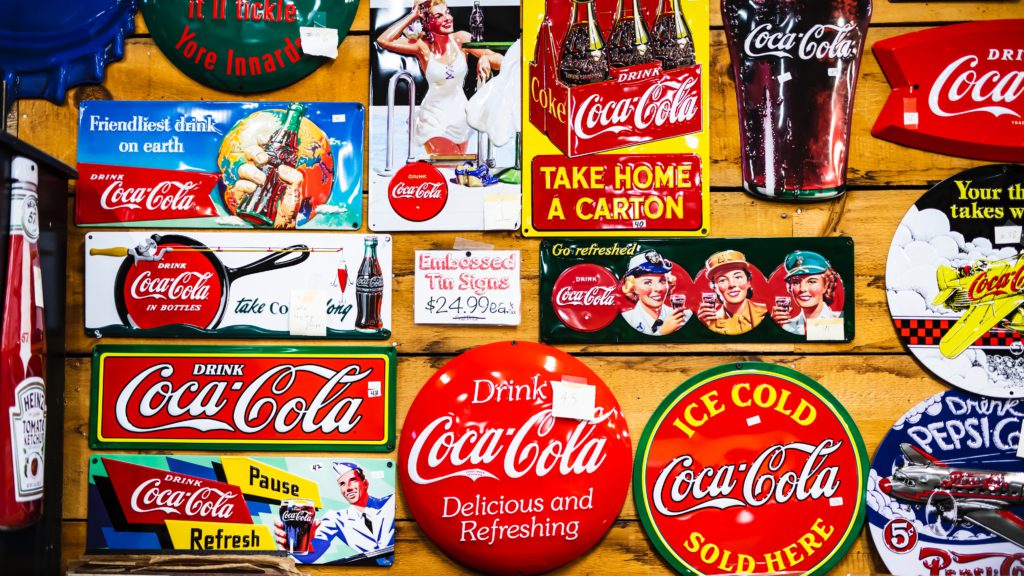It’s kind of a worrying development, but we see it everywhere these days. We simplify, in the most cases knowingly (sometimes people are just stupid) to make a succinct, sellable, shareable point. It’s how the media landscape functions these days.
As much as I admire a cleverly phrased idea, I get a wee bit disturbed when people ignore important aspects of that same idea, things that makes it more complex, and taking simplification as a shortcut to traffic and attention.
That said landscape was nicely painted by Aron Levin in the podcast; The New Influencer with Ste Davies (highly recommended listening).
I was really charmed by the rhetoric salesmanship of the undoubtedly very talented Aron, who’s track record include King.com and Spotify, when he stated that the death of almost all consumer brands is because of disregarding the importance of distribution.
The idea was that brands no longer is important and that marketers should focus their energy on building their own distribution power instead.
If you ever been in a restaurant, and you go, “can I have a Diet Coke?” And the waitress looks at you and says, “is Pepsi fine?” And you go, “yeah”, right? You know what that is – it’s distribution – not brand… (Aron Levin from the New Influencer Podcast – April 2019)
It is such a perfectly crafted statement – we can relate to it, since we all been in that situation. It feels true. We’ve chosen Pepsi, because our preferred alternative wasn’t available.
However, in a marketplace you’ll always have alternatives, substitutes and complements. Perhaps, the most significant thing of this quote is that you probably never heard it reversed. That’s because Coke is the stronger brand.

Soft drinks is a physical product, and are as low on the engagement scale as products come. High engagement physical products have vastly different decision and buying processes, and you have a myriad of different profiles, preferences and psychological setups that use different ways to select between products.
So it’s not JUST distribution. It’s a huge part, but it is always a combination.
Digital vs physical distribution
Another way to eke out this argument is to say that, as distribution is becoming decentralized and the user is more in control it turns into a new battle ground where people, small businesses and large corps are acting on a more levelled playing field. That new battleground is not in solely building physical distribution (with immense capital and size) and barriers to new entrants, it’s about building algorithmic distribution power, and intellectual power to understand what gathers a critical mass of attention to one specific brand. But then, we’ve already deflected into a discussing product, branding and positioning, and distribution which is a significant part of that.
Tesla brand vs distribution
Using Tesla as an example, one of the worlds most coveted brands, and claiming its imminent death is a smart PR-strategy, the reasoning behind that however is just to simplified to take seriously. The argument in brief – all cars will be electric, and self-driving – hence Tesla with its limited distribution power will go bust.
Almost everything that we consume today, starts as an innovation, or a novel feature of some sort, that by the laws of progress turns into a commodity. By the same arguments used above, Spotify should fold as soon as Apple with its distribution power enters the scene. However, it’s not just about that is it?
Some portion of BMW’s will be sold primarily because of their distribution power, and some part primarily because of its branding power, similarly some portion of Teslas will be sold because of being on the consideration list of premium car brands, others due to the fact that you can order one on Tesla.com.
All of them, however will be sold as a complex summation of things made up of product, place, price, promotion, and the brand are an amalgam of all of this.
The realities for digital products, compared to physical ones are very different. Buidling the distribution power of Spotify is not the same thing as BMW or Coke for that matter. By using the Coke & Pepsi-distribution argument and overlaying that premise on the reality for Tesla is unjust and to be fair, a bit misleading.
So, yes, Aron – you managed to upset* not only Tesla fans, but also, self-proclaimed branding and communications people.
*Of course i’m not upset for real, that would be strange, but you know how things go in this day and age – reaction is a strategy.